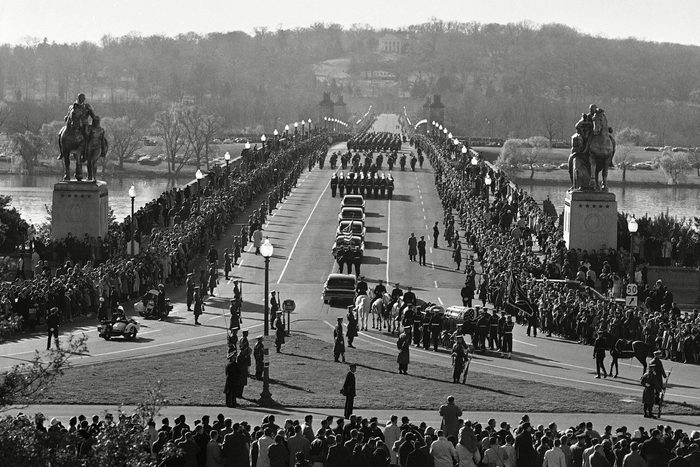
Not just conspiracy theorists…
Following a year-long investigation into the assassination of President Kennedy, the Warren Commission, led by U.S. Supreme Court Chief Justice Earl Warren, concluded Kennedy’s death was the result of one senseless act by one unhinged man. Despite the report’s conclusions, the American public had a gut feeling something was off. In fact, legitimate subsequent investigations have called the report into question.
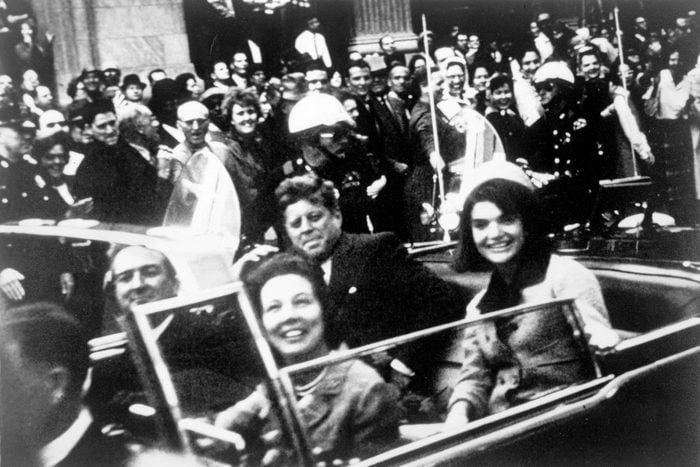
What we know happened
On November 22, 1963, crowds lined the streets to catch a glimpse of President Kennedy and his wife, Jackie, as they proceeded through downtown Dallas in an open convertible. Just after 12:30 p.m., gunshots sounded in rapid succession. The president was hit in the neck and head and died soon after. Find out the last thing JFK said to Jackie before he died.
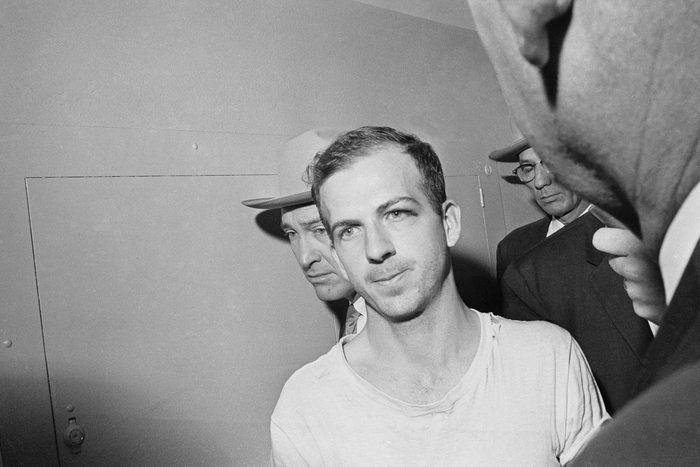
The Warren Commission’s report
The Warren Commission found “no evidence” Lee Harvey Oswald was part of any conspiracy to assassinate the president and reported all shots had been fired by Lee Harvey Oswald from the south-east corner on the sixth floor of the Texas School Book Depository. Although Oswald was murdered by Jack Ruby before he could provide any useful insight, the report found no evidence that Oswald—or Ruby—was part of a conspiracy.
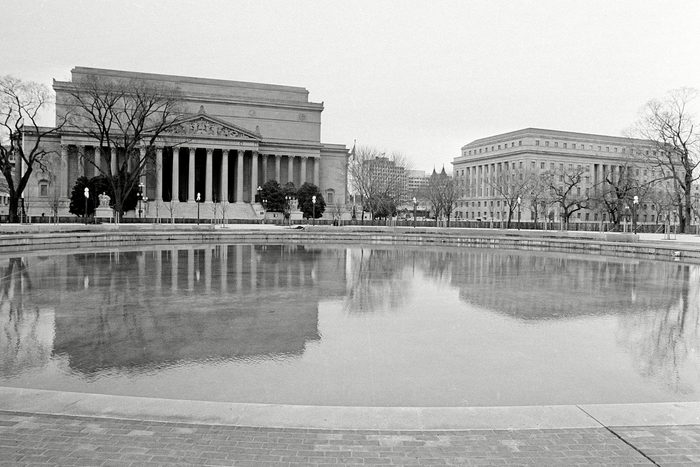
The tip of the iceberg
The 888-page report of the Warren Commission is far from the entire investigation record, which consists of approximately five million pages. Known as The John F. Kennedy Assassination Records Collection, it’s maintained by the National Archives. There’s no public access: Despite a 1992 law that required all assassination investigation records to be disclosed to the public by the end of October 2017—and the public’s eager anticipation of such disclosure—the full release has not yet happened.
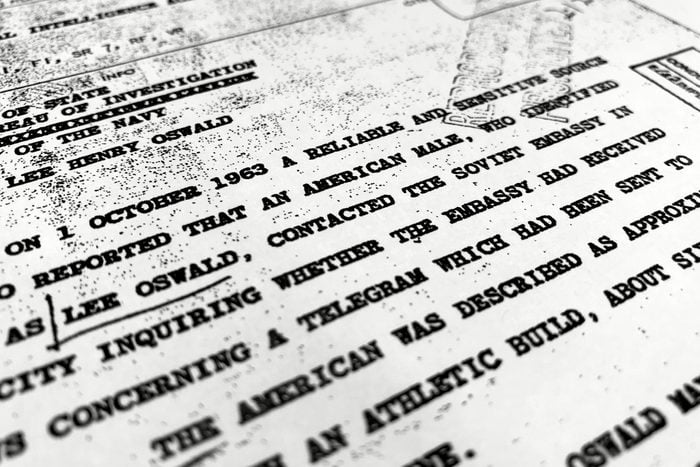
An overarching lack of transparency
Although much of the Collection has been publicly available since the late 1990s, over the years, government agencies have been successfully lobbying—all the way to the President if necessary—to postpone full disclosure. As of April 2018, some information is still being withheld from the public and will remain out of reach through at least October 26, 2021. At that point in time, the decision to release the rest will be reviewed by the president, but still with no guarantee of disclosure. So what aren’t we seeing—and why?
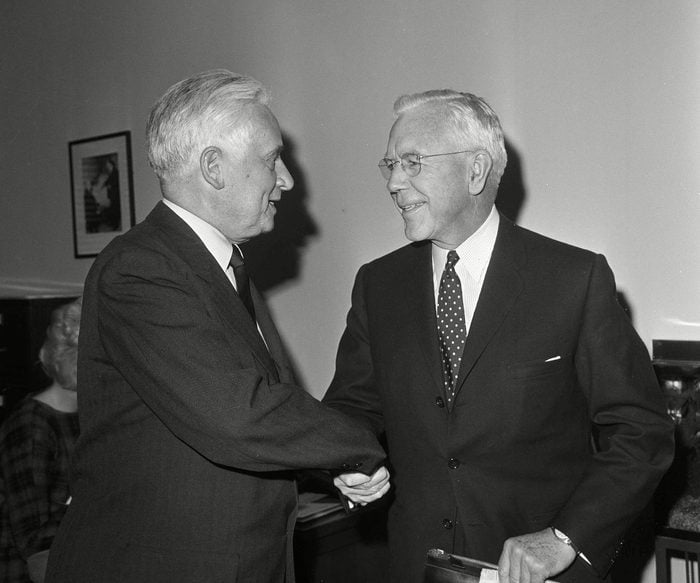
Did they think no one would notice?
Despite the push to keep portions of the Collection under wraps, recently declassified documents point to an actual conspiracy by CIA officers to hide evidence from the Warren Commission. Apparently, John McCone, the CIA’s director at the time, worked with other CIA officials to withhold evidence of another CIA conspiracy—this one to assassinate Cuban leader, Fidel Castro. “Without this information, the commission never even knew to ask the question of whether Oswald had accomplices in Cuba or elsewhere who wanted Kennedy dead in retaliation for the Castro plots,” according to Politico.
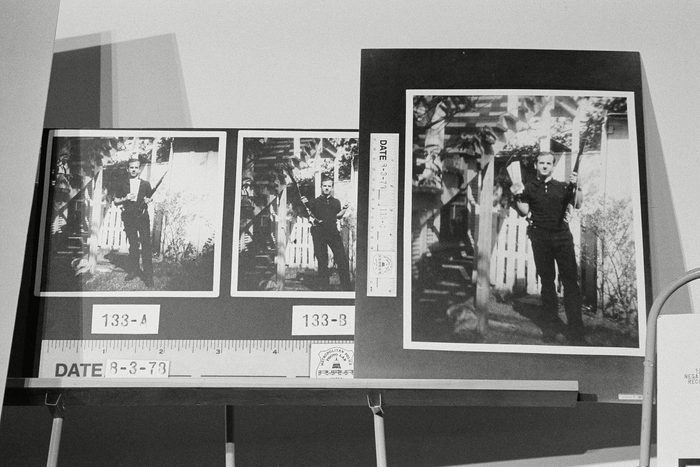
Questions raised by the House of Representatives
In 1979, the House Select Committee on Assassinations (HSCA), established one year earlier to investigate the assassination of both Martin Luther King, Jr. and President Kennedy, concluded that “President John F. Kennedy was probably assassinated as a result of a conspiracy.” The committee’s report has never been successfully refuted. That said, it’s also considered by experts to be no more credible than the Warren Commission’s report.
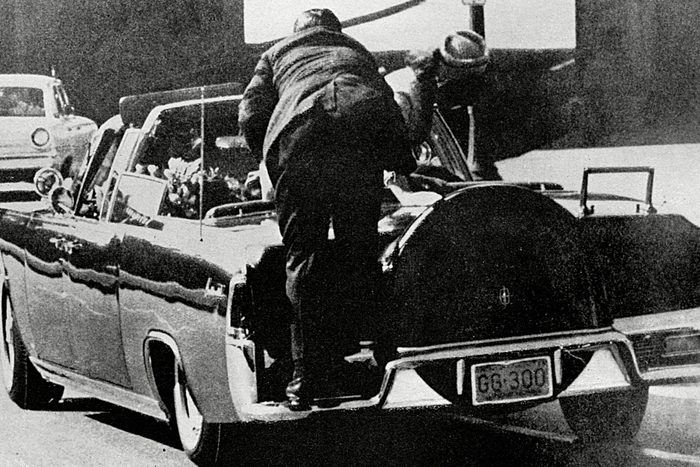
High probability of a conspiracy, but who?
One of the failings of the HSCA’s report is that while it resurrected the possibility of a conspiracy and the idea that there may have been more than one gunman, it didn’t develop a plausible explanation for these events. Even as the committee concluded that based on scientific evidence, there was a “high probability that two gunmen fired at President John F. Kennedy,” there was no evidence to suggest who may have been behind the conspiracy.
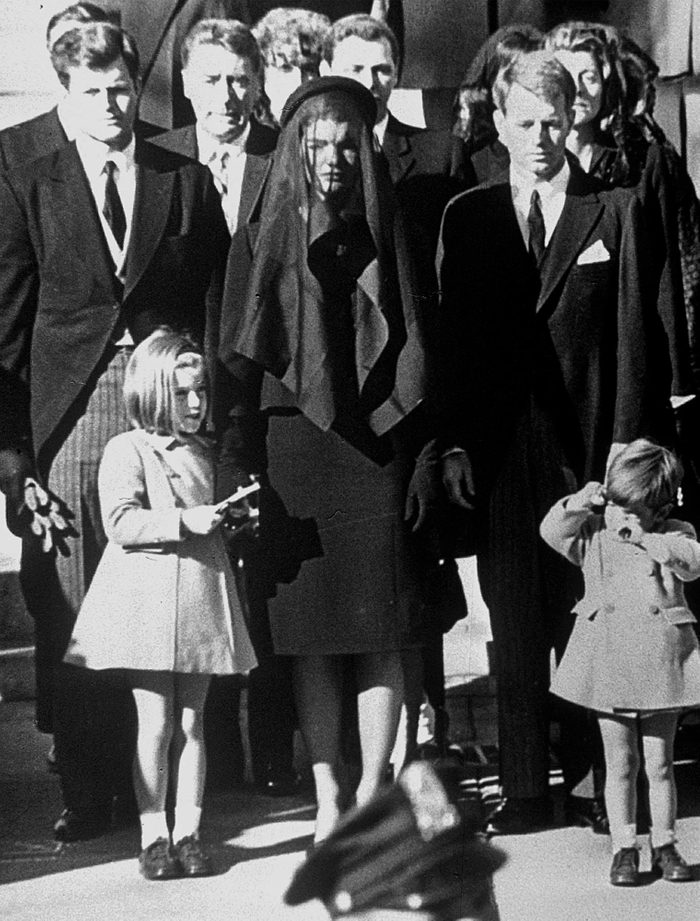
What about why?
In fact, the HSCA ruled out a number of conspiracy theories that had been floated over the years since the Warren Commission’s report. One of those theories the committee refuted was that the Cuban government—or anti-Castro Cubans—had somehow been involved. However, the declassified McCone documents suggest that not all the evidence was made available for the HSCA to review, either. Nonetheless, the HSCA couldn’t rule out the possibility that individuals not formally connected to Cuba/anti-Castro Cuban groups had conspired to kill the president. Find out the weird thing JFK never traveled without.
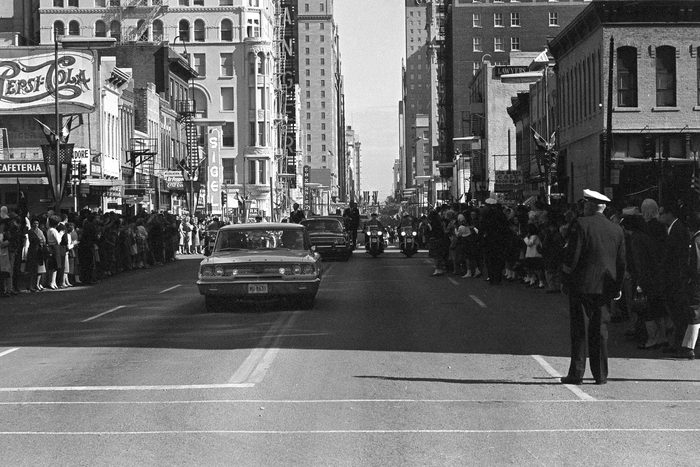
Maybe the problem is the word “conspiracy”
Any Kennedy assassination theory putting forth the possibility of a conspiracy is almost immediately discredited as crazy and paranoid. So disregard the conspiracy theorists and just consider what some of the witnesses saw and heard. Toni Glover, PhD, an associate professor at the University of Scranton, who was 11 when she witnessed the shooting, believes the fatal shot came not from Oswald, but a second shooter, perhaps on the other side of the road. “There’s fairly substantial evidence,” she tells the BBC. “It has some validity to it.” Check out these rarely seen photos of JFK and Jackie.
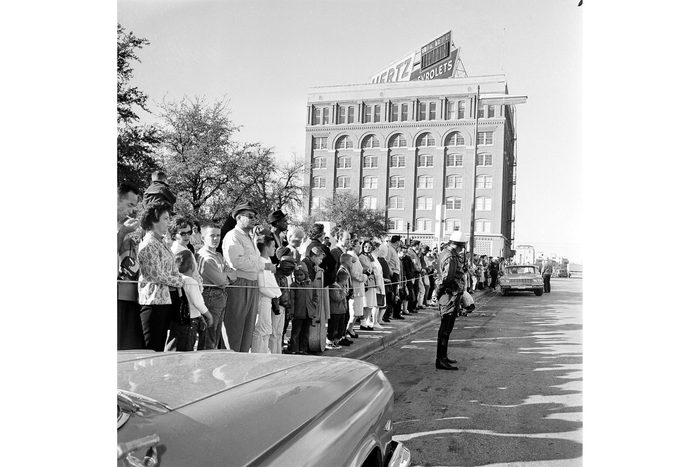
“The bullet from behind” theory
Former Washington Post reporter Jefferson Morley, who’s written several books on the assassination, avoids using the term “conspiracy theory.” But Morley doubts the fatal shot came from Oswald, in part because Kennedy’s head went backward on getting hit. Morley feels this makes it more plausible the fatal shot came from in front of Kennedy, rather than behind. Yet the official report relies on a competing forensic theory—that a shot from behind causes the head to go backward.
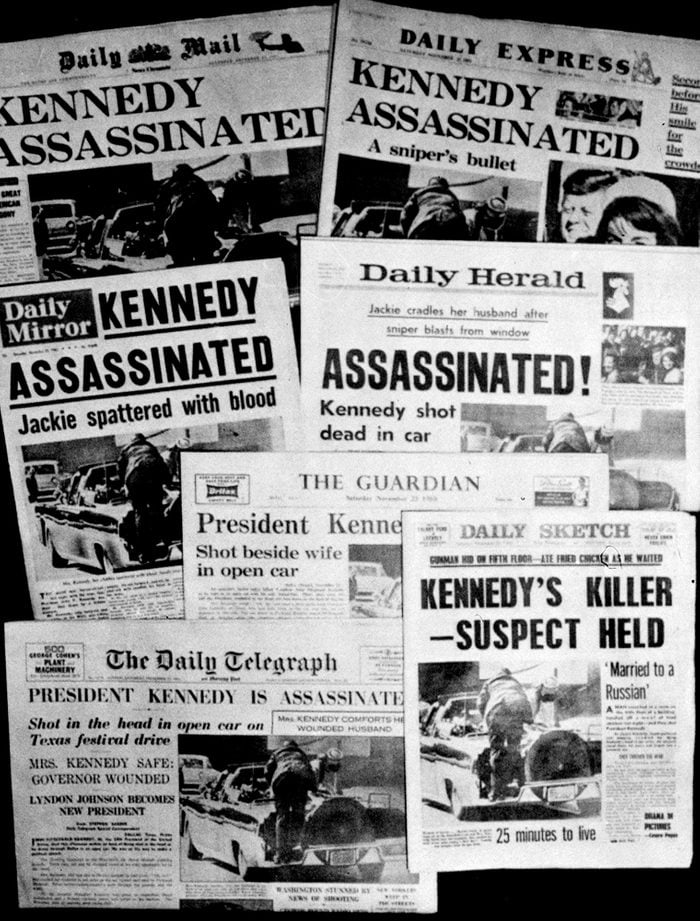
The reliability of the “paraffin test”
Morley also points out that a paraffin test on Oswald’s cheek suggested he hadn’t fired a rifle. However, the test’s reliability has been questioned and to this day there hasn’t been a final ruling on the test. Next, find out the 12 conspiracy theories that turned out to be true.
